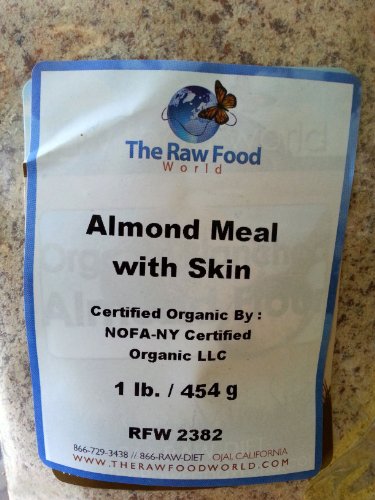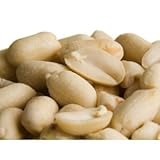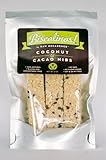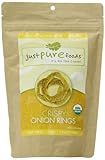Almond Flour (Ground with Skin, Organic Raw), 16oz
Product Description
Almond flour, sometimes called almond meal, is made from raw almonds. The almonds are ground into a powder that you can use instead of wheat flour in cookies, cakes and other foods. It is sometimes used by people who are allergic to wheat gluten. Although almond flour is similar in consistency to wheat flour, its nutritional makeup is significantly different.
Carbohydrates and Sugars
A serving of almond flour contains 6 g of carbohydrates and 1 g of sugars. White wheat flour, on the other hand, has about 24 g of carbohydrates and no sugars. Those on a low-carbohydrate diet can benefit from choosing almond flour over wheat flour.
Protein and Dietary Fiber
Almond flour offers 5 g of protein per serving. It also has 3 g of dietary fiber. In contrast, white all-purpose flour offers 3 g of protein and about 0.6 g of dietary fiber. This makes almond flour a slightly better choice for those who want to add more protein to their diets.
Vitamins
A serving of almond flour has about 6.25 mg of vitamin E. For adults, the National Institutes of Health's recommended daily intake of vitamin E is 15 mg per day, so almond flour can be a significant source of this vitamin. A serving also contains about 12 mcg of folate and 13 mg of choline, both of which are B vitamins that aid in cell production; however, these values are less than 1 percent of the recommended daily intake.
Minerals
Almond flour packs about 63 mg of calcium per serving, or about 6 percent of the recommended daily intake. It also comes with about 167 mg of potassium, 0.9 mg of iron, 64 mg of magnesium and 0.6 mg of manganese. A 1/4 cup serving provides 16 percent of the daily recommended intake of magnesium, about 5 percent of potassium and iron, and about 27 percent of manganese, making it a good source of these minerals.






